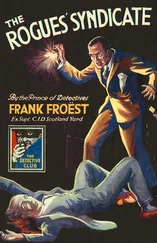The news had come in the previous morning, before the sledge's first pictures arrived on the screen. They'd lowered the CTD probe at first light, when the air was damp and cold. Johanson had tried to ignore the sinking sensation in his stomach as the boat pitched over the waves. The first samples were whisked away to the geophysical lab where they underwent analysis. Shortly afterwards, Bohrmann had summoned the team to the seminar room on the main deck. They sat at the polished wooden table, waiting expectantly and clasping mugs of coffee.
Bohrmann's eyes were fixed on a sheet of paper. 'The first results are available already,' he said. 'They're not representative, more a snapshot of what's going on.' His eyes lingered briefly on Johanson, then shifted to Hvistendahl. 'Is everyone acquainted with methane plumes?'
A young man from Hvistendahl's team shook his head.
'They form when free methane gas escapes from the seabed,' explained Bohrmann. 'The gas dissolves in the water, is pulled along by the current and rises to the surface. Usually plumes are found at plate boundaries, where one plate pushes beneath the other, causing sediment compaction and uplift. As a result, fluids and gases escape. It's a well-known phenomenon.' He cleared his throat. 'Areas of high pressure like this are common in the Pacific but not in the Atlantic – and certainly not around Norway. The boundaries here are mainly passive. But this morning we picked up a highly concentrated methane plume. It doesn't figure in any of the earlier data.'
'What level of concentration?' asked Stone.
'Worryingly high – on a par with the levels we found off the coast of Oregon. And that was in a fault zone.'
'Right.' Stone smoothed the frown from his forehead. 'Well, to my knowledge, methane is always leaking into the water around here. I've seen it countless times. It's a well-known fact that somewhere on the seabed gas is constantly escaping. There's always a reason for it. I don't see any call for panic.'
'I don't think you quite understand.'
'Now, look here,' said Stone, 'all I care about is whether or not there's cause for concern. If you ask me, there isn't. We're wasting our time.'
Bohrmann smiled amicably. 'The slope in this region, Dr Stone, especially to the north of here, is held together by methane hydrates. The layers of hydrate are sixty to a hundred metres deep – that's a hefty wedge of ice keeping the seabed in place. However, we're aware of vertical breaks in the layers. Gas has been escaping through them for years. Theoretically, it shouldn't happen. At such high pressure and low temperature, it should freeze on the seabed. But it doesn't. That's the gas you were referring to. We can live with it – we can even decide to ignore it. But we shouldn't let our graphs and tables make us feel complacent. I'm telling you, the concentration of free gas in the water is excessively high.'
'But is it really a seep?' asked Lund. 'Is the gas in the water escaping from the crust, or is it coming from-'
'Dissociated hydrates?' Bohrmann hesitated. 'That's the big question. If hydrates are dissociating, it means the parameters have changed.'
'And is that the case here?' said Lund.
'There are only two parameters affecting the stability of the hydrates: pressure and temperature. But we haven't detected any rise in water temperature, and the sea level hasn't altered.'
'What did I tell you?' said Stone. 'You're worrying about a problem that doesn't exist. So far, we've only seen one sample.' He looked to the others for support. 'A single bloody sample.'
Bohrmann nodded. 'You're right, Dr Stone. We're speculating. But we'll find out the truth. That's why we're here.'
JOHANSON AND LUND HAD headed for the canteen. 'Stone's getting on my nerves,' Johanson said. 'He's always trying to undermine the tests. What's wrong with him? It's his bloody project.'
They refilled their coffee mugs and took them out on deck.
'What do you make of the results?' asked Lund.
'They're preliminary findings, not results.'
'All right. What do you make of the preliminary findings?'
'I don't know.'
'Go on, you can tell me.'
'Bohrmann's the expert.'
'But, in your opinion, is there a link with the worms?'
Johanson thought back to his conversation with Olsen. 'I don't have an opinion,' he said cautiously, 'not yet. It's too early to say.' He blew on his coffee. The sky stretched gloomily above them. 'But I'd rather be at home than here.'
That had been yesterday.
While the new set of samples was analysed, Johanson took himself off to the radio room tucked behind the bridge. From there he could contact anyone in the world via satellite. For the past few days he'd been working on a database of contacts, firing off queries to institutes and scientists, presenting the whole thing as of scholarly interest. The first replies had been disappointing. No one else had found the worm. A few hours previously, he'd extended the search to some of the other expeditions currently at sea. Now he pulled up a chair, squeezed his laptop in among the radio equipment and logged into his account. The only interesting email was from Olsen, who'd written to say that the jellyfish invasion in South America and Australia was now out of hand:
I don't know whether you're listening to the news out there, but there was an update last night on the jellies. They're swarming all over the coast. According to the newsreaders' oracle, they're specifically targeting well-populated areas. Which is nonsense, of course. Apart from that, there's been another pile-up – a couple of container ships near Japan. Boats are still disappearing, but they've managed to record a few distress calls. No concrete details about British Columbia yet, but plenty of rumour. Supposedly the whales are getting their own back and have started hunting humans. Not everything you hear is true, though, thank God. Well, that's all the good news from Trondheim for now. Don't drown.
'Thanks a bunch,' Johanson muttered tetchily.
But Olsen was right they didn't listen to the news enough here. Being on a research vessel was like falling out of space and time. People always said they were too busy to listen to the news when in fact they just wanted to he rid of politicians, cities and wars for a while. But after a month or two at sea, they'd start to long for civilisation, with its technology, hierarchies, cinemas, fast-food outlets and floors that didn't rise and sink.
Johanson realised he wasn't concentrating. His mind was on the images that had filled the monitors for the past two days.
Worms.
The continental slope was crawling with them. The mats and seams of frozen methane had disappeared under millions of seething bodies trying to burrow into the ice. They could no longer treat it as a localised invasion. They were witnessing a full-scale attack that ran the length of the Norwegian coast.
As if someone had magicked them there…
Surely other people had come across something similar.
Why did he get the feeling that the worms and the jellies were connected?
It was a crazy idea.
And yet, he thought suddenly, the craziness looked like the start of something new.
This was only the beginning.
He called up the CNN homepage to check out Olsen's news.
Lund walked in, set a mug of black tea in front of him and smiled conspiratorially. Their trip to the lake had forged a bond between them, a kind of unspoken solidarity.
The smell of freshly brewed Earl Grey filled the air. 'I didn't know they had it on board,' said Johanson.
'They don't,' she said. 'You bring it with you, if you know someone who likes it.'
Johanson raised his eyebrows. 'That was thoughtful of you. What favour were you hoping to extract from me this time?'
Читать дальше












